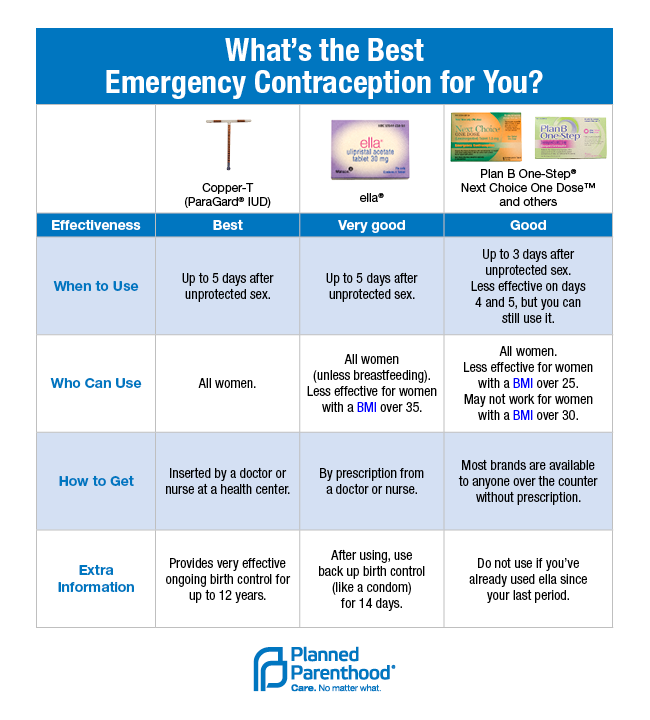This Is How Emergency Contraception Works

By:
The morning after pill is a form of emergency contraception used after unprotected sex has already occurred. If you're a woman who missed taking her birth control, or if a condom broke, you were raped, or if you just didn't use protection for some other reason, then it can improve the likelihood that you won't get pregnant.
The pill is essentially designed to prevent ovulation from happening, meaning it stops or delays the ovaries releasing an egg. There are claims that this form of birth control can also prevent a released egg that has been fertilized from implanting on the uterus (which is required for a pregnancy), but there is some controversy over this claim. The pill has been protested by anti-abortion activists; they believe a fertilized egg is a baby. However, even conservative presidential candidate Marco Rubio has started supporting it as a way to avoid needing an abortion.
"And luckily in the 21st century, we have treatments available early on after an incident that can prevent that fertilization from happening," Rubio stated in early October. "And that’s why I support the morning-after pill being available over the counter and I certainly support them being made available immediately for rape victims."
All of that said, Bill Nye recently pointed out many fertilized eggs never become babies, regardless of human intervention.
There are a few well-known morning after pills. Plan B and the generic versions of Plan B can be obtained over the counter at most pharmacies without a problem. Plan B is said to be effective during at least three days after unprotected sex. If it has been a little longer than that, a prescription morning after pill called Ella is effective five days after unprotected sex. The quicker you take whichever pill you use post-intercourse, the more effective it will be.
Plan B is available over the counter at many pharmacies. While some brands like Plan B are available to purchase at any age, Planned Parenthood notes that "[a] few brands of emergency contraception (brands with two pills instead of one pill) require you get a prescription from a doctor, nurse, or other health care provider if you're 16 or younger." Clinics like Planned Parenthood sometimes charge people for the pill based on their income, or can accept health insurance for it, and it can cost as much as $65 in other clinics and pharmacies. "Plan B One-Step usually costs about $40-$50, and the generics cost about $35-$45," according to Princeton University's website on emergency contraception.
Plan B is said to be up to 95 percent effective in preventing pregnancy if taken within 24 hours of the sexual encounter and up to 89 percent effective within 72 hours. By comparison, birth control pills taken daily can be over 99 percent effective, when taken properly. Ella is said to be up to 85 percent effective, though it can be more effective when it's taken shortly after intercourse.
 Planned Parenthood - plannedparenthood.org
Planned Parenthood - plannedparenthood.org
All of that said, many studies have shown copper IUDs are the most effective way of preventing a pregnancy after unprotected sex. This kind of IUD can prevent up to 99 percent of pregnancies. It is supposed to be able to prevent the pregnancy up to five days after sex.
A warning: morning after pills make some women feel sick (temporarily), and they are not as effective as using birth control regularly. In terms of safety, there is no evidence taking a morning after pill more than once in a month is dangerous, but condoms, daily birth control pills, and IUD implants are seen as better options. Morning after pills also don't prevent the transmission of STDs. It's always better to plan ahead and use contraception, but there are certainly options for when that doesn't happen.
